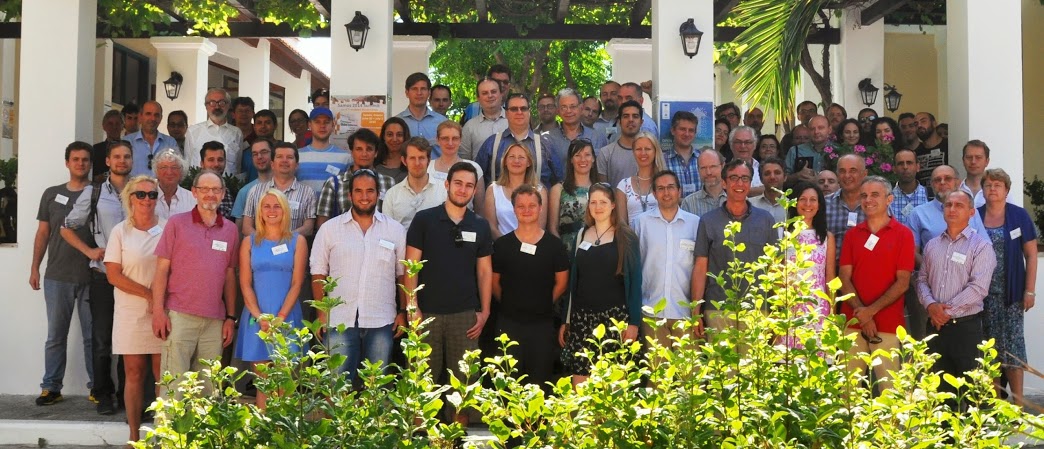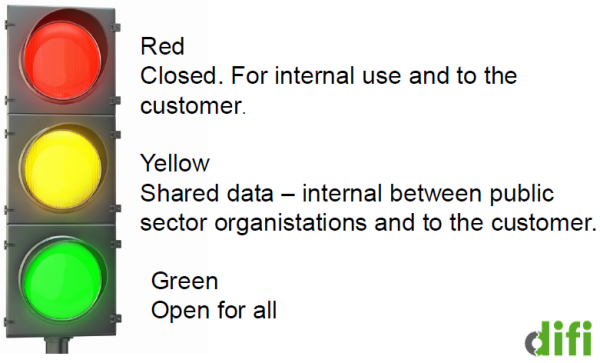Progress Report 29 December 2014
- This version
- http://www.w3.org/2013/share-psi/PR1-20141229/
- PDF version
- http://www.w3.org/2013/share-psi/PR1-20141229/pdf
- Latest version
- http://www.w3.org/2013/share-psi/PR/
- Previous version
- http://www.w3.org/2013/share-psi/PR1-20141201/
 Share-PSI 2.0 Progress Report December 2014
by Share-PSI 2.0
is licensed under a Creative Commons Attribution 4.0 International License.
Share-PSI 2.0 Progress Report December 2014
by Share-PSI 2.0
is licensed under a Creative Commons Attribution 4.0 International License.
Overview
The Share-PSI 2.0 Thematic Network brings together a broad range of stakeholders in the reuse of public sector information to help them to reach consensus on best practice and technical standards, complementing existing and ongoing initiatives in the domain. The network's focus is on implementing the revised PSI Directive and includes government agencies and ministries from a variety of member states as well as standards bodies, academic institutions, commercial companies working in the field, and organisations that effectively interface between government and citizens using open data as the medium. The network will identify the most appropriate best practices to be followed, highlight the need for further standards work, and share experiences of using those standards.
To achieve this, the project is organising a series of 5 workshops around Europe during 2014 and 2015. ERCIM/W3C is coordinating the work and there is a direct communication and overlap of personnel with its Data on the Web Best Practices Working Group. Evidence that its work on developing a set of technical best practices is being informed by Share-PSI can be seen in its Use Cases and Requirements document.
The final result of the project will be that national, sectoral and community guidelines around technical aspects of Public Sector Information will be created, or updated, taking into account the information exchanged at the workshops and codified by the standards bodies. Several such guides already exist such as the Flemish Open Data Handleiding (PDF) produced by CORVe.
It is this direct involvement in the standardisation process and the subsequent publication of guidelines for selecting and using those standards that will ensure that Share-PSI 2.0 has a lasting impact.
The Workshops
The first workshop was held as part of the Samos Summit and took Uses of open data within government for innovation and efficiency as its theme. There were 85 participants in what was organised as a traditional workshop with individuals presenting their work and taking questions afterwards. The report summarises the main points made during the workshop and draws a number of conclusions, for example: there needs to be a strategy that coordinates the efforts of multiple agencies.

The Share-PSI 2.0 network itself is large and includes many of the key people and organisations concerned with PSI across all but a handful of EU member States. In that sense, the network represents a significant fraction of its own target audience. The partners are proud that since the project began, two more partners have joined. These are Open Data France and the Albanian Institute of Science which has an active an effective programme around open government data in that country.
It is clear from the partner list that expertise and experience is not in short supply. Perhaps as a direct result of this, the most popular sessions at Samos were not the paper presentations but the bar camp sessions. Held at the end of the two day event, individuals were able to pitch ideas for discussions among the group. 10 participants pitched their suggestions that, after a little negotiation and voting with feet, became 4 parallel discussions that explored specific areas in more detail. The success and popularity of these sessions lead to the agenda for the Lisbon event including two bar camp sessions and only two short plenary presentation sessions. The bulk of the workshop comprised parallel sessions where presentations were all-but banned. Session leaders were asked to facilitate a conversation around their topic rather than present a pre-cooked solution. The Lisbon event attracted 8 other EU-funded projects including ePSIPlatform and, most notably in this context, LAPSI 2.0 which is looking at the legal aspects of the revised PSI Directive and so complements Share-PSI 2.0 perfectly. As an aside, Share-PSI is participated in LAPSI's final event a few days before the Lisbon workshop.
Capturing the Output
Many of the workshop session conclusions are policy-oriented, rather than technical. For example, the need for a clear strategy that enjoys support at the highest level, whilst true, is out of scope for a technical standards body. Therefore, Share-PSI is taking a dual approach to capturing best practices:
- those related to technical issues are being developed by the W3C working group;
- those related to policy issues are being identified by Share-PSI.
An initial draft of the W3C document is expected to be formally published by the end of January 2015. Share PSI partners are using a similar pattern to develop policy-related best practices on the project wiki. Once stabilised, these will be published as best practices that can be easily cited in the localised guides, a list of which is being curated, also on the project wiki.
Impact
Many partners are already benefiting from their participation in Share-PSI as highlighted in the following stories.
Several approaches, discussed at the different workshops, such as best practices on metadata, data release scenarios, data lifecycle and other concepts, resulted in valuable input towards the 2014 revision of CORVe's revised sixty six page Open Data Handbook. The concept of using open data for innovation and efficiency within government, the focus of the summit in Samos, is mentioned in documents giving rise to the “Beleidsnota”, a document of intent for the next five years, by the cabinet of Administrative Affairs of the Flemish government in Belgium. A CORVe report produced after the Samos summit and the ensuing discussions were partly responsible for the demand from government in this document to execute open data at an accelerated pace.
The discussions around the required legislative framework helped the Flemish government to finalise a new decree on the reuse of PSI, which was approved on December 19th 2014. The fact that the open data concept should also be approached bottom-up instead of top-down, as was the case in Flanders, highlighted the need for consulting users and other stakeholders. The debate in Samos in this regard resulted in a different and successful approaches on the Open Data Day in Flanders on October 3rd 2014.

A couple of practices, discussed at the summit in Samos, are going to be used in Flanders, are introduced in the Action Plan Open Data in Flanders 2015, or have in some cases already been implemented:
- The concept of a traffic light system, used by the Norwegian government, a handy way to describe whether and how data should be shared.The concept and practice of defining an ecosystem of open, interoperable services for sharing and reuse, is being implemented in 2015.
- The approach taken by the Czech government with respect to putting the emphasis and priority on frequently requested datasets instead of data quality and process.
- The notion that making data publication an integral part of change management within public administrations, such as put forward by the Italian representative, was taken on board during the discussions with regards to reorganization at the Flemish government recently.
- Discussions at the summit on the use of Dublin Core terms or the European DCAT standard are at present input for the intergovernmental debate in Belgium.
Tudor has actively promoted the activities of the Share-PSI project to local stakeholders in Luxembourg, including the Luxembourgish administrations. This has lead Tudor to heading the local organisation committee of the European Data Forum which will take place in Luxembourg on November 16-17th, 2015 under the Luxembourgish presidency.
DUK volunteered to disseminate the best papers of the Samos Workshop in a special issue of the JeDEM open access journal. The journal is scheduled for publication in early 2015 with five papers from the Samos summit.
Fraunhofer FOKUS informed the Federal German Ministry of the Interior about the Share-PSI thematic network and discussed possible collaboration for the future workshop taking place in Berlin in fall 2015. Furthermore Fraunhofer FOKUS has also promoted Share-PSI in the State of Hamburg to the division responsible for the new Hamburg transparency portal.
UVT provided comments and suggestions to ‘Digital Agenda for Romania’ strategy during the public consultation launched by Romanian Government in July 2014 with respect to open data implementation.
In recent months, the Greek Ministry of Administrative Reform and e-Government, MAREG, has been implementing a new policy on opening PSI following the formal transposition of the new PSI Directive. Share-PSI has been helpful in understanding - with concrete examples - how other countries implement such policies. The knowledge exchange during the workshops helped to form the new policy but also the implementation methodology. In addition to this, it provides the opportunity to cooperate closely with other project partners and work together for initiatives and projects of common interest that arise during the workshops and the information exchange in general.
For example, MAREG and the Slovenian Ministry of the Interior, MNZ, have been cooperating on public expenditure tracing initiatives and relevant projects as well as on legislation issues on public sector information access. Slovenia was also interested and received information about the Greek "flagship" transparency initiative.
This kind of sharing between Share-PSI partners is already common. Several partners are sharing advice on free-standing DCAT approaches (rather than approaches that used e.g. CKAN). In Scotland there are projects based in rural and remote communities that are looking to use the Web and PSI to provide deeper insight into the workings and resources of the community in order to improve its position in the global market. Through the Share-PSI network, and specifically at the Samos workshop, the similarities of geography, uneven population distribution and remote community settings between Greece and Scotland became clear and this lead to the Crichton Institute in Dumfries linking up with network partners in Greece who are working with the Samiakigi project in Samos.
During November and December 2014, Martin Alvarez-Espinar (CTIC) on behalf ePSI Platform held meetings with national Governments in Zagreb, Budapest, Bratislava, Vilnius, Tallinn and Warsaw. These meetings aimed at helping with the implementation of the Revised PSI Directive using best practices and standards, as well as awareness raising in general. All the meetings started with a speech to introduce the European Commission's actions towards the homogeneous implementation of the Directive in all the Member States. All the governments and stakeholders present at these events were informed of the Share PSI 2.0 activities and invited to attend the upcoming workshops. The Polish Ministry of Administration and Digitization have accepted the invitation, taking the number of new network partners to three.
Next steps

The next workshop will be held in the Romanian city of Timişoara. Hosted by the West University, the original topic of Identifying data sets for publication has been expanded a little to Open Data Priorities and Engagement. Early reflections on the Lisbon workshop suggest that a combination of approaches from that event and from Samos is required. Like Lisbon, Timişoara will comprise facilitated sessions, however, the call for participation asks session leaders to address specific questions, the answers to which can more readily be rendered as best practices.